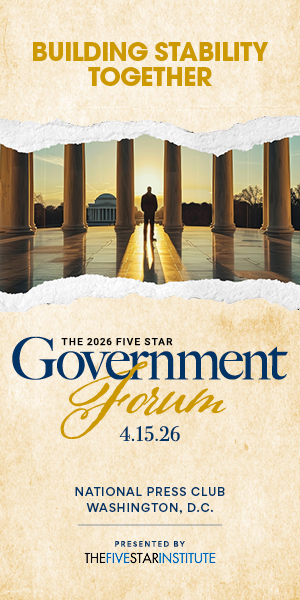New York University (NYU) released a report revealing that Havalah Hopkins is frequently asked to cater for events in the Seattle region, including graduation celebrations, company lunches, and church potlucks. Even if it’s inconsistent, the $18 an hour she makes plus delivery fees and tips makes it preferable to working minimum-wage shifts. Although it’s still difficult to make ends meet, it helps her afford the government-subsidized apartment she and her 14-year-old autistic son have been living in for three years.
“It’s a cycle of feeling defeated and depleted, no matter how much energy and effort and tenacity you have towards surviving,” Hopkins said.
Although experts estimate that just one in four low-income households eligible for rental aid from the U.S. Department of residence and Urban Development actually receive it, the 33-year-old single mother is thankful for her stable residence. And now that federal officials are working to limit HUD policy, Hopkins could lose her house.
President Donald Trump’s administration is committed to redefining HUD’s broad role of providing stable housing for low-income individuals, which has been at the core of its purpose for generations, in the face of a deteriorating national affordable housing and homelessness crisis. A two-year cap on the federal government’s trademark rental aid programs is one of the suggested adjustments.
HUD Secretary Scott Turner made the case that measures like time limitations will address fraud and waste in Section 8 voucher programs and public housing during a June congressional budget hearing.
“It’s broken and deviated from its original purpose, which is to temporarily help Americans in need,” Turner said. “HUD assistance is not supposed to be permanent.”
However, restricting such important subsidies would be a major step back from HUD’s mission. Time restrictions would be a drastic change that might destabilize the most vulnerable households, many of which are unlikely to ever be able to afford today’s record-high prices. Millions of renters moved in with the promise of subsidized housing for as long as they were poor enough to remain eligible.
Things Are Changing
1.4 million households, mostly working families with children, might lose their vouchers and public housing subsidies if families were disconnected after two years, according to new data from New York University that was exclusively obtained by The Associated Press and released on Thursday. According to the article, this would result in numerous families being evicted by housing authorities.
It stated that a wide time restriction would result in “substantial disruption and dislocation,” pointing out that the strategy is mainly unproven and that the majority of the few housing authorities who have willingly tried it have since dropped the pilots.
HUD’s contracts with private landlords, who say they are already feeling the uncertainty as public housing authorities from Seattle to Atlanta declare they are pulling back in expectation of federal budget cuts, might also be jeopardized by a departure from the agency’s long-standing mission of helping house the poor.
Opponents worry that the restriction would sabotage people pursuing self-sufficiency, so negating the time-limit advocates are hoping to accomplish.
Kasey Lovett, a HUD representative, disputed the NYU report.
“There is plenty of data that strongly supports time limits and shows that long-term government assistance without any incentive disincentivizes able-bodied Americans to work,” Lovett said in a statement. She primarily cited statistics suggesting low employment among HUD-subsidized tenants.
Hopkins claimed that in an economy that frequently shows little concern for working poor people like her, the legislation will probably result in her and her son becoming homeless.
“A two-year time limit is ridiculous,” she said. “It’s so disrespectful. I think it’s dehumanizing — the whole system.”
Who’s Most At-Risk?
About 70% of households who could be impacted by a two-year limit have already been receiving those subsidies for two or more years, according to research by the Housing Solutions Lab at New York University’s Furman Center, which examined HUD data over a ten-year period.
This is based on projections for 2024 and excludes old and disabled individuals who are exempt from time constraints. About half of the approximately 4.9 million households receiving rental assistance are exempt households.
Time limits would mostly penalize working families that make significantly less than the median income in their area, which would ultimately divert federal rental aid away from households with children, according to the NYU researchers who conducted the first analysis to look at the potential effects of the proposed regulation.
“Housing assistance is especially impactful for children,” said Claudia Aiken, the Study Co-Author and Director of New Research Partnerships for the Housing Solutions Lab. Their health, education, employment and earnings potential can “change in really meaningful ways if they have stable housing.”
Hopkins, whose family was on a years-long waitlist in the affluent area where she grew up, would be impacted. She moved into a two-bedroom public housing unit in Woodinville, WA, with her son in July 2022. Her monthly rent payment of $450 represents 30% of her household income.
In June, the King County Housing Authority announced it would stop awarding certain new vouchers, citing the at least $2,000 higher cost of a market-rate unit in the area.
Hopkins is aware that without rental help, she would never be able to afford to live in her home state. Being able to stay as long as they needed was a relief. Her old mobile house cost hundreds of dollars a month, and she had been struggling to make ends meet.
“There’s no words to put on feeling like your housing is secure,” Hopkins said. “I feel like I was gasping for air and I’m finally able to breathe.”
She attributes her ability to finally escape an abusive marriage to the housing subsidy, but she still has aspirations of working as a party decorator or starting her own catering company. Hopkins claimed she has been plagued by ideas of packing her belongings into a van with her kid ever since she found out about Trump’s proposal, upending the stability she established for him.
To read more, click here.









